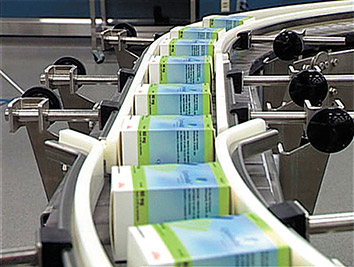Subscriber Benefit
As a subscriber you can listen to articles at work, in the car, or while you work out. Subscribe NowEli Lilly and Co. said it expects high demand worldwide for its experimental antibody therapy if it is approved for use, and said it hoped most patients would pay nothing or almost nothing out of pocket for the treatment, even though it was too early to provide an exact price.
CEO Dave Ricks said in a conference call Wednesday afternoon that the Indianapolis-based drugmaker is likely to team up with governments around the world to distribute the drug if it is cleared for use, rather than distribute it through usual channels.
The highly anticipated treatment could be first in a new class of COVID-19 drugs that provide treatment and protection against the virus to people at risk of infection.
“We’ve been doing this ourselves,” Ricks said. “But we do agree with many that during a pandemic and during a situation where we will likely have more demand than supply, unfortunately, it’s best to partner with the government to ensure fair allocation within the country. Additionally, we will be working with countries outside the U.S. for distribution, particularly in hotspots where we see significant viral outbreak.”
On Thursday, Lilly said it entered into an agreement with the Bill & Melinda Gates Foundation help supply the antibodies to low- and middle-income countries.
“In the interest of making supply of COVID-19 therapeutic innovations available globally as quickly as possible, Lilly will make certain volumes of its antibody therapeutic manufactured in other facilities available to lower-income countries prior to April 2021, pending the timing of regulatory authorization,” Lilly said.
Lilly’s collaborators, AbCellera Biologics Inc., Shanghai Junshi Biosciences Co., Ltd. and Columbia University have agreed to waive their royalties on the Lilly therapeutic antibodies distributed in low- and middle-income countries as part of this initiative.
“To help end the COVID-19 pandemic it is vital that people, no matter where they live or their ability to pay, can access effective therapeutics,” said Mark Suzman, CEO of the Bill & Melinda Gates Foundation, in a written statement. “It is encouraging to see Lilly stepping up and committing to making products more affordable and accessible to everyone who needs them. Until every country can effectively tackle COVID-19, no country will be safe.”
Lilly has already started making one of the two antibodies in its drug, betting that ongoing studies would prove it worthwhile. It said it could have 100,000 doses this month and as many as one million by the end of the year.
Shares of Lilly jumped 3.7%, or $5.41, to $149.54 each in afternoon trading following the company’s morning announcement that it has asked the U.S. government to allow emergency use of the therapy, known as LY-CoV555.
It said clinical trials showed positive early results suggesting the drug reduced symptoms, the amount of virus, hospitalizations and emergency room visits for patients with mild or moderate COVID-19. The results have not yet been published or reviewed by independent scientists.
In response to several questions about price, Ricks said the company hasn’t finalized prices it would charge patients, governments and insurance companies, but hoped the actual cost to patients would be low.
“We do want to make sure that patients have no or very, very low out-of-pocket costs, anywhere in the world, to receive this therapy should it be approved,” Ricks said.
He added that Lilly is likely to roll out a tiered pricing scheme, under which patients in poor countries would likely be charged less than patients in more affluent countries, including the United States.
“We don’t want to allocate this product based on ability to pay or even to the highest bidder,” he said. “Rather, we’re going to predefined tiers, based on GDP per capita or metrics like that, and really ask wealthy nations to pay more than poor countries.””
He said the company is working actively with several philanthropic partners on making the drug available to low- and middle-income countries as defined by the World Health Organization.
“Several of those countries have severe outbreaks going on,” Ricks said. “They clearly don’t have the means to pay something like the U.S. or the UK or Japan would be able to pay. And so we’re looking at a more philanthropic approach in those markets.”
Lilly scientists developed the treatment using an antibody identified by partner AbCellera Biologics Inc. of Vancouver from a blood sample taken from one of the first U.S. patients who recovered from COVID-19.
Its drug is similar to one that President Donald Trump received on Friday from Regeneron Pharmaceuticals Inc. These medicines supply concentrated versions of specific antibodies to help the immune system clear the coronavirus that causes COVID-19. They’re given as a one-time treatment through an IV.
Yet it’s not clear if the evidence will be viewed as strong enough for the Food and Drug Administration to grant emergency-use authorization, as it has done for the antiviral drug remdesivir. The results are an interim look at a mid-stage study in which 112 people received the antibodies and 156 got a placebo.
The amount of virus was significantly lower 11 days later in those given the drug, meeting the main goal of the study. The virus also was lower at earlier time points as well. Symptom scores were better at three days.
The company said there were no serious drug-related side effects.
Please enable JavaScript to view this content.

